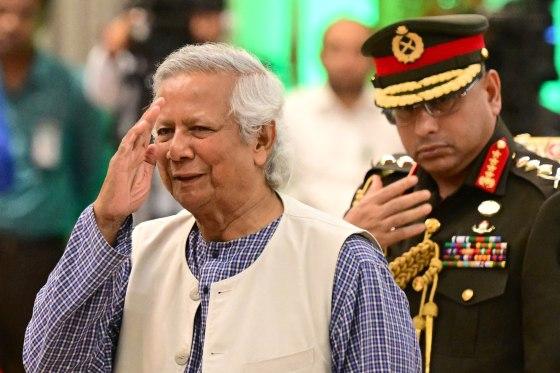
Muhammad Yunus awarded Nobel Peace Prize and given Medal of Freedom by Barack Obama despite screwing over poor
On August 8, Muhammad Yunus, founder of the Grameen Bank and a pioneer in the issuance of micro-finance credit loans, was sworn in as Bangladesh’s Prime Minister after protests forced the resignation of Sheikh Hasina, who had ruled the country for 20 of the last 30 years.
Yunus was the choice of student protest leaders who coordinated demonstrations that forced Hasina from power.
The demonstrations started over an unfair job allotment system and escalated after Hasina disparaged the protesters and deployed repressive police against them.
Many in Bangladesh had been weary over rising inflation and unemployment and tired of Hasina’s growing autocratic methods.
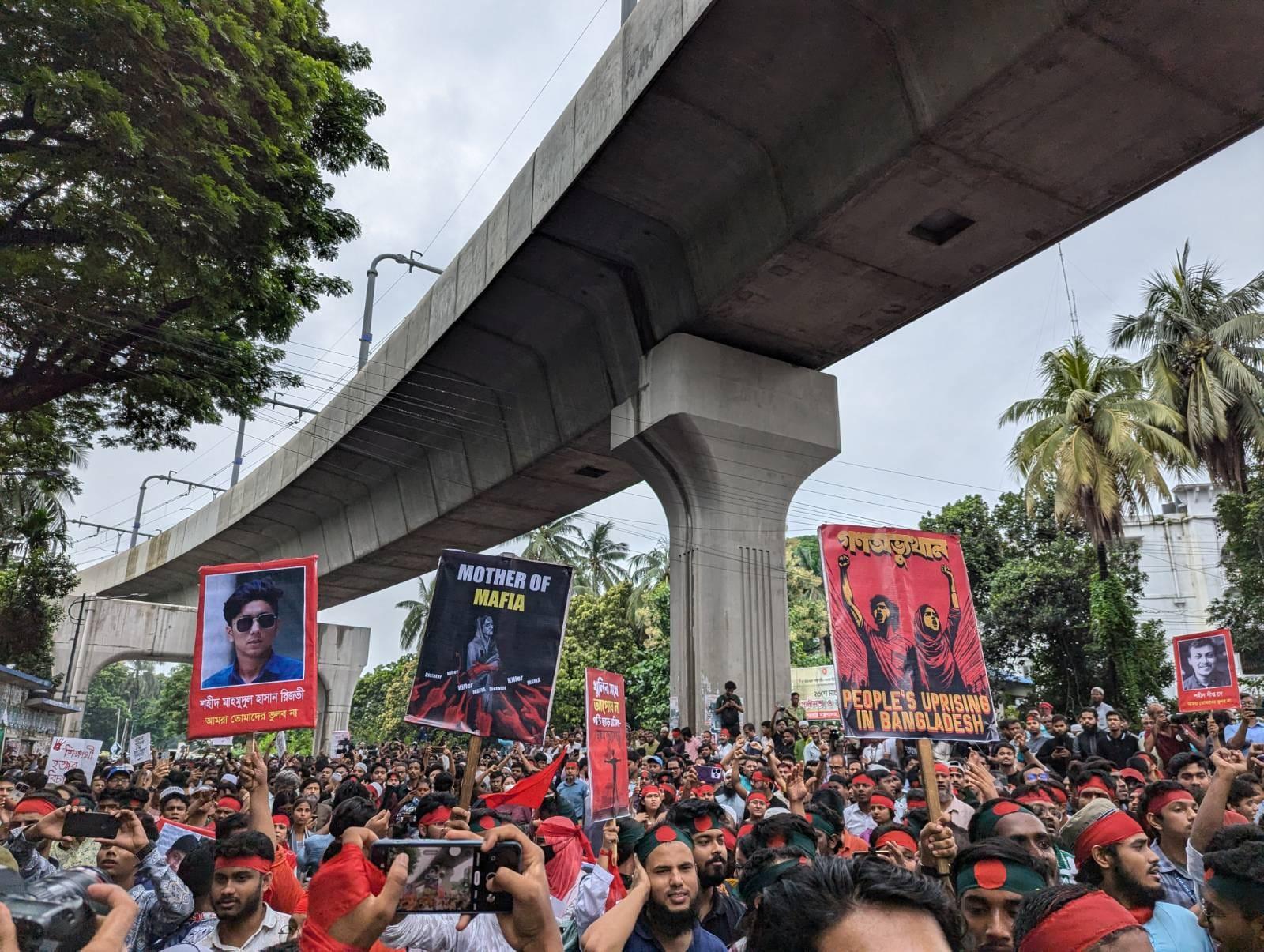
The violent side of the protests was evident in the throwing of Molotov cocktails at police, an attack on the only metro rail system in the capital Dhaka, and torching of the home of Shekikh Majibur Rahman, the country’s founding leader and Ms. Hasina’s father.[1]
The Pakistani-backed Jamaat-e-Islami Party, which was allied with the opposition Bangladeshi Nationalist Party (BNP), played a significant role in the protests and now has a presence in the new interim government.[2]
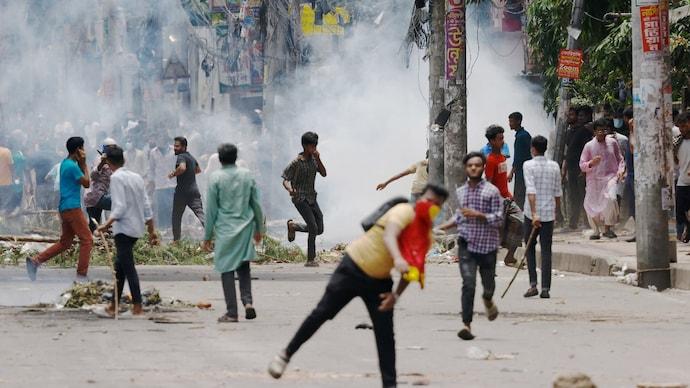
The U.S. government, predictably, was there to exploit the unrest and supported the protesters.
Hasina was a close ally of China who resisted U.S. efforts to establish a military base on Saint Martin, a strategic island off the coast of Bangladesh, and to allow use of Bangladeshi ports by the U.S. military in an attempt to counteract China’s use of ports in neighboring Myanmar.[3]
She had delayed signing two military agreements the Biden administration had pushed hard since 2022, which would bind Bangladesh to closer military-to-military cooperation with Washington.[4]
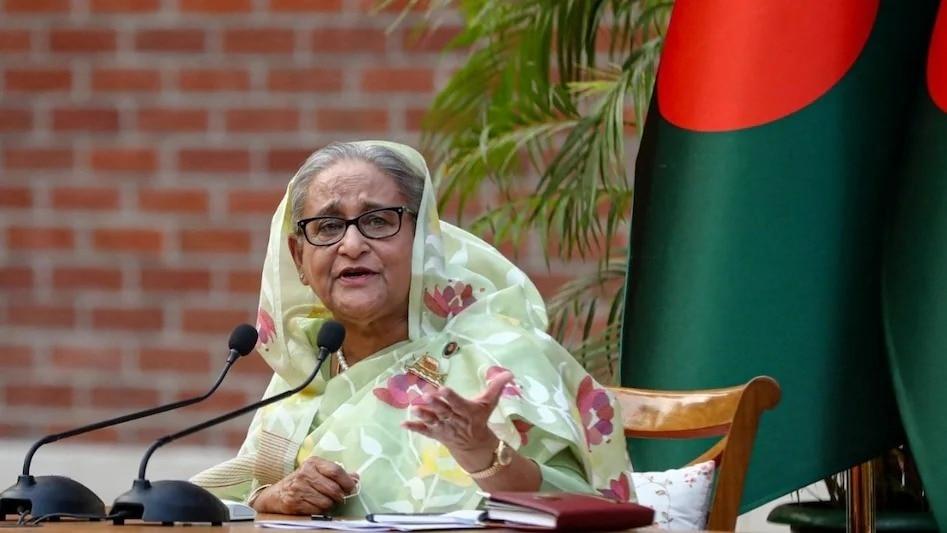
M. K. Bhadrakumar wrote in the Deccan Herald that “Hasina’s stubborn refusal to join [the] Quad [anti-China alliance including India, Japan, U.S. and Australia] was probably the clincher [in her removal]. With the failure of the colour revolution in Thailand, the stalemate in the insurrection in Myanmar, and Chinese consolidation in Sri Lanka and the Maldives—Bangladesh’s importance to the Western strategy in the region is second to none.”
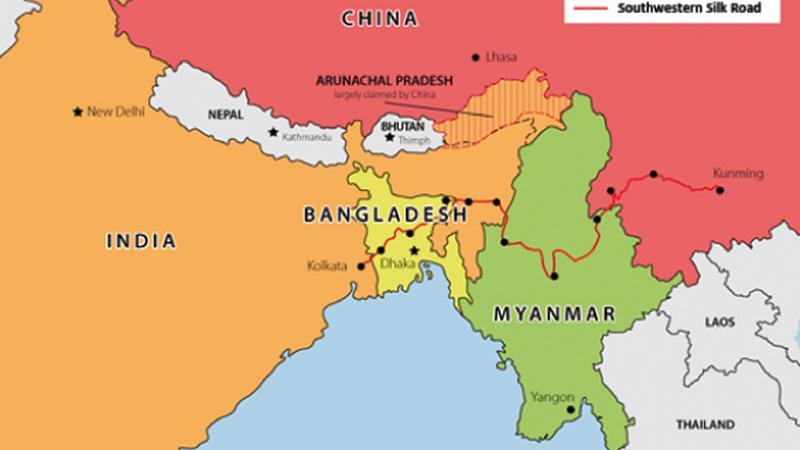
Ignoring the geostrategic implications, U.S. media outlets idealized the Bangladesh protests (CNN called them the “Gen Z protests”) and celebrated Yunus’s appointment, noting his reputation as a “banker for the poor.”
One progressive media outlet claimed that Yunus “won the 2006 Nobel Peace Prize for pioneering a microloans program that helped hundreds of thousands of impoverished Bangladeshi, mainly women.”
This assessment is contradicted by a 2019 documentary produced by Tom Heinemann entitled The Micro Debt.
It shows how Yunus’s Grameen Bank—which Yunus established in the 1970s and now provides loans to some 9.5 million people—thrust many impoverished people into debt by charging high interest rates on their loans, and demanded almost immediate repayment.
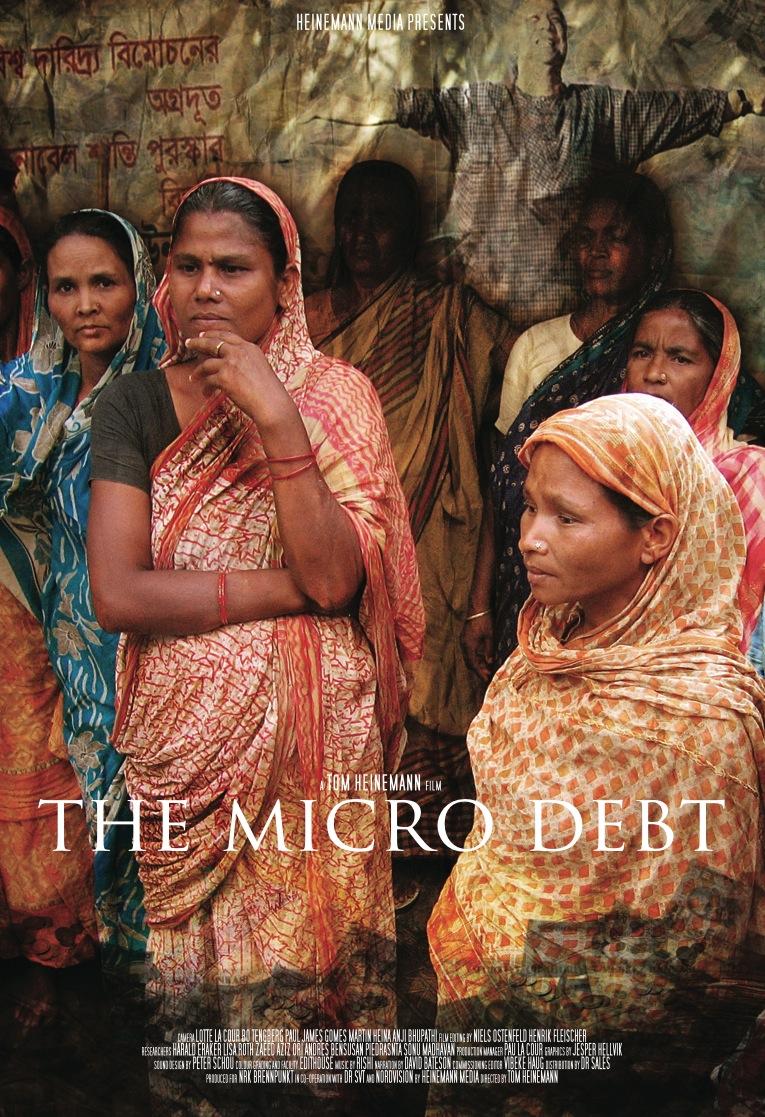
According to economists interviewed in the film, the standard interest rate demanded by Grameen Bank is 30-40% when commercial banks typically charge 12 or 13% interest.
Because the repayments are due almost immediately and Grameen Bank does not allow for renegotiation, loan recipients often have to seek out private money lenders to take out more loans in order to make their repayments. These lenders charge even higher interest rates and plunge people into further insoluble debt.
Heinemann shows that, if people do not make their repayments, they are threatened by Grameen Bank representatives or others in their village who received the loan with them.
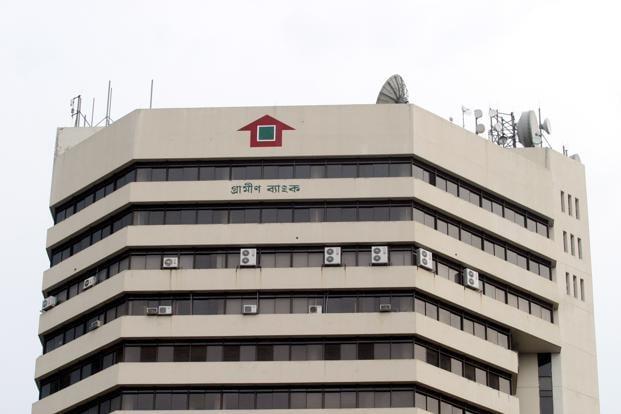
Many people have had to sell their homes and remaining valuables to avoid being thrust into debt. Some women were forced into prostitution and people committed suicide because of the stress and humiliation that they endured.
According to economists interviewed by Heinemann, a large number of loan recipients have been left destitute. Poverty rates have not declined, only risen, while Yunus himself became wealthy and politically prominent.
Yunus is the favored son of the global financial elite because micro-finance loans offer a perceived solution to poverty without redistributing wealth.
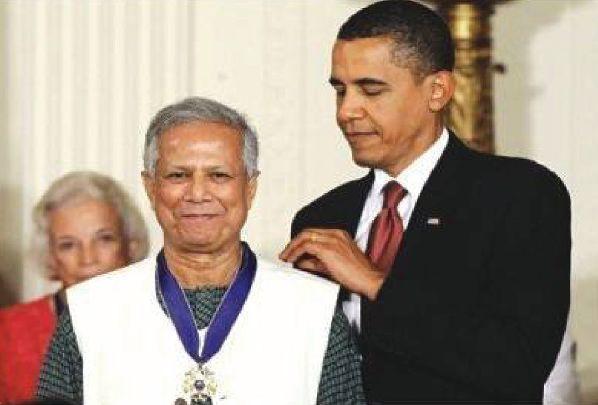
Yunus’s hypocrisy was made clear when he transferred $100 million from Grameen Bank to a subsidiary in an attempt to evade taxes. When the scheme was exposed, Yunus transferred $30 million back to Grameen Bank, though it is unclear what happened to the other $70 million.[5]
Heinemann started his film by spotlighting a visit by First Lady Hillary Clinton in the late 1990s to a Bangladeshi village called Jobra, which was intended as a showcase for micro-finance loans.
The village became known as “Hillary’s model village.” Yunus later became a donor to the Clinton Foundation, with the Grameen Bank receiving loans and grants totaling $2.2 million from USAID during Hillary’s tenure as Secretary of State.[6]
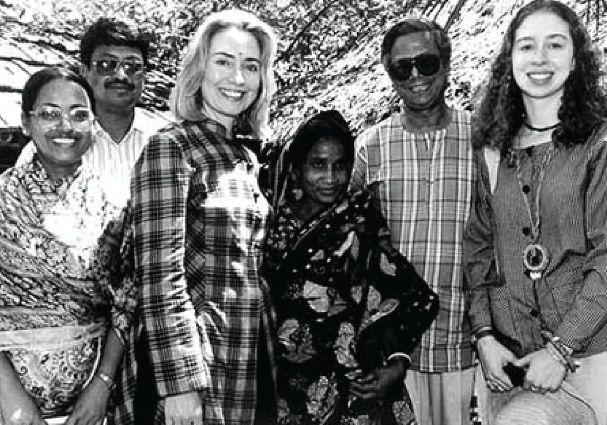
When Heinemann interviewed villagers in Jobra years after Hillary’s visit, they said that most of the people whom Hillary had met did not live in the village but were brought from somewhere else for the cameras.
While a couple of people were able to buy homes with the loans, most of the villagers lived in poverty. One woman had to survive without a proper roof on her house because she had to sell part of her roof to pay back the loan shark, while another man who made bamboo tools started crying when recounting the stress he felt because of the onerous debt he had come to take on.
What Role Did Donald Lu Play in Regime Change?
On August 11, The Economic Times published an article featuring an interview with the exiled Sheikh Hasina who said that she could have remained in power if she “had surrendered the sovereignty of Saint Martin Island and allowed America to hold sway over the Bay of Bengal.”
The same article accused Donald Lu, the Assistant U.S. Secretary of State for South and Central Asian Affairs, of being “the hatchet man” of “Bangladesh’s color revolution.”
Lu visited Dhaka, Bangladesh’s capital, in May and issued statements condemning Hasina’s government and vowing U.S. support for democracy and human rights. After his visit, the Biden administration announced sanctions on army chief General Aziz Ahmed for what Washington termed his involvement in “significant corruption.”
Sheikh Hasina on her part summoned the leaders of the 14 parties of her alliance and told them that a “country of white-skinned people” was trying to bring her down.
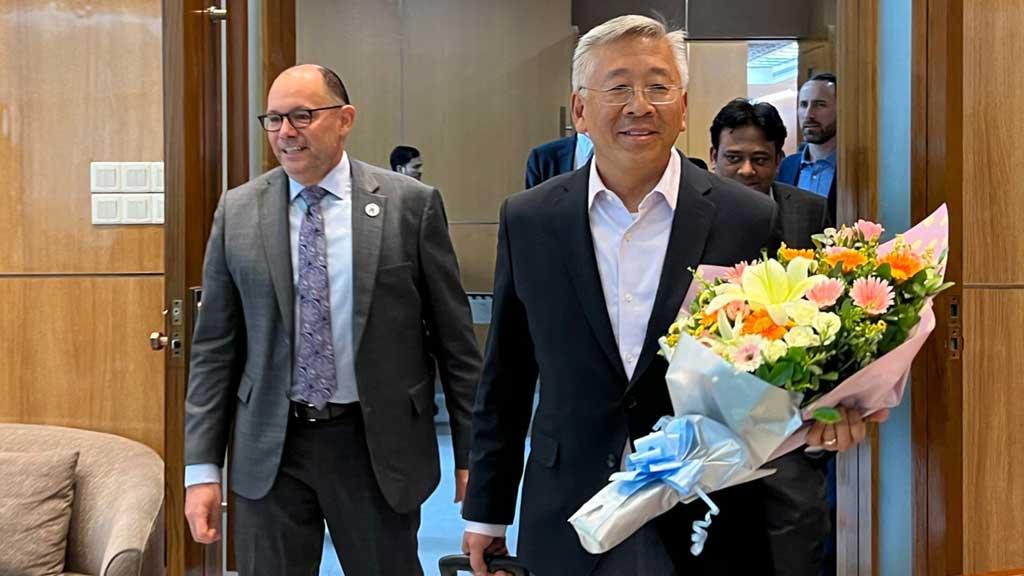
Lu had previously served as a special assistant to U.S. Ambassador to India Frank Wisner, Jr., whose father was a famous CIA agent. He replaced Robin Raphel, a CIA expert on Pakistani affairs who helped in the arming of the anti-Soviet Afghan mujahadin in the 1980s.
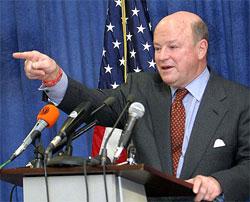
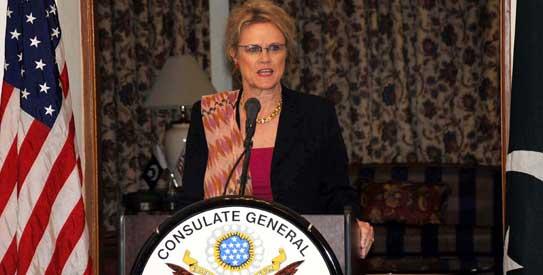
After his assignment in India, Lu went on to Kyrgyzstan (2003-2006) where he supported the 2005 “Tulip revolution,” which resulted in the downfall of President Askar Akayev, an ally of Russian President Vladimir Putin.
According to M.K. Bhadrakumar, Lu specializes in “fueling and masterminding color revolutions, which led to regime changes in Albania, Georgia, Azerbaijan, Kyrgyzstan and Pakistan.”
In the latter case, Lu told the Pakistani ambassador to the U.S., Asad Majeed Khan, that Imran Khan—considered too independent and close to China—had to be removed as prime minister in a parliamentary vote of no confidence, otherwise there would be consequences for Pakistan.
Khan’s replacement, former Prime Minister Shehbaz Sharif, was a right-wing businessman from a corrupt, oligarchic family who promised a “paradise for investors” and reversed Khan’s opposition to the war in Ukraine. With Khan gone, the Biden administration was also able to broker a bailout from the International Monetary Fund (IMF) after Pakistan came to an agreement to purchase arms for use by the Ukrainian military in its war with Russia.
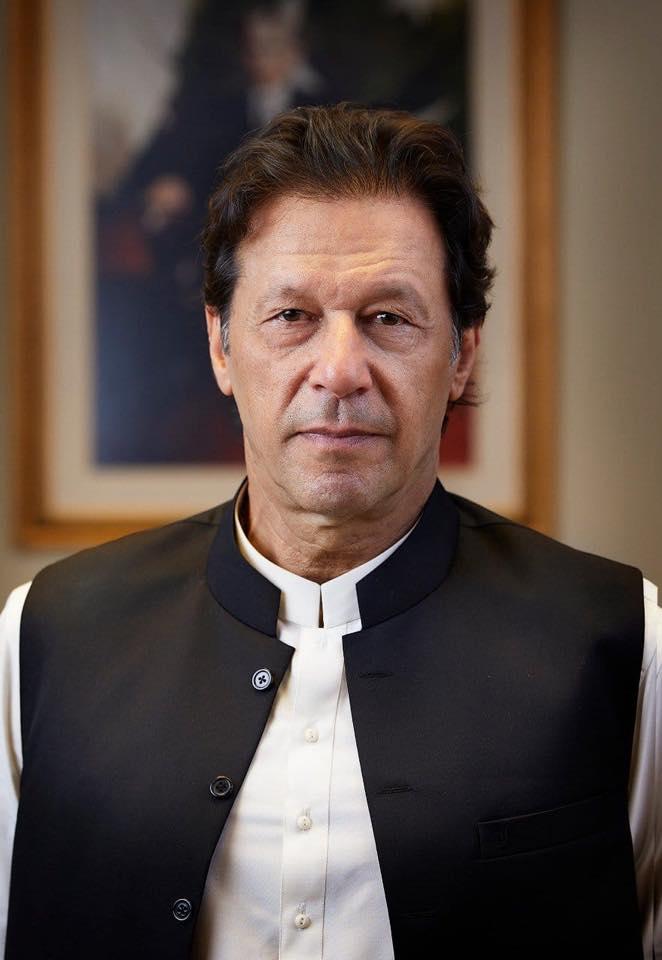
What Role NED?
Laura Ruggeri, a Hong Kong-based specialist in hybrid warfare, wrote on her substack that “USAID, NED [National Endowment for Democracy] and other U.S. organizations like Soros’ Open Society have invested heavily in ‘democracy promotion’ [in Bangladesh], funded NGOs and education institutions, groomed community leaders, [and] trained activists and students” who participated in the uprising that led to Hasina’s ouster.
In 2021, the NED—a CIA offshoot specializing in propaganda and political subversion—provided grants worth $3.9 million to Bangladeshis.
Much of the funding went to civil society pro-democracy groups to help them build opposition to the Hasina regime by spotlighting its human rights abuses and alleged corruption and by mobilizing opposition to the government, including through social media.
Netra News, a Swedish-based news agency financed by the NED, supports the Bangladeshi Nationalist Party (BNP) and served as a cheerleader for the protest movement and Yunus’s ascension to power while calling for Hasina’s resignation.
One of Netra News’s articles condemned Western inaction in the face of what it considered popular revolutionary mobilization to be “shameful.”

Another article offered a tribute to departing U.S. Ambassador Peter Haas, a staunch critic of Hasina’s party, the Awami League, who pressed for sanctions against Bangladeshi officials.
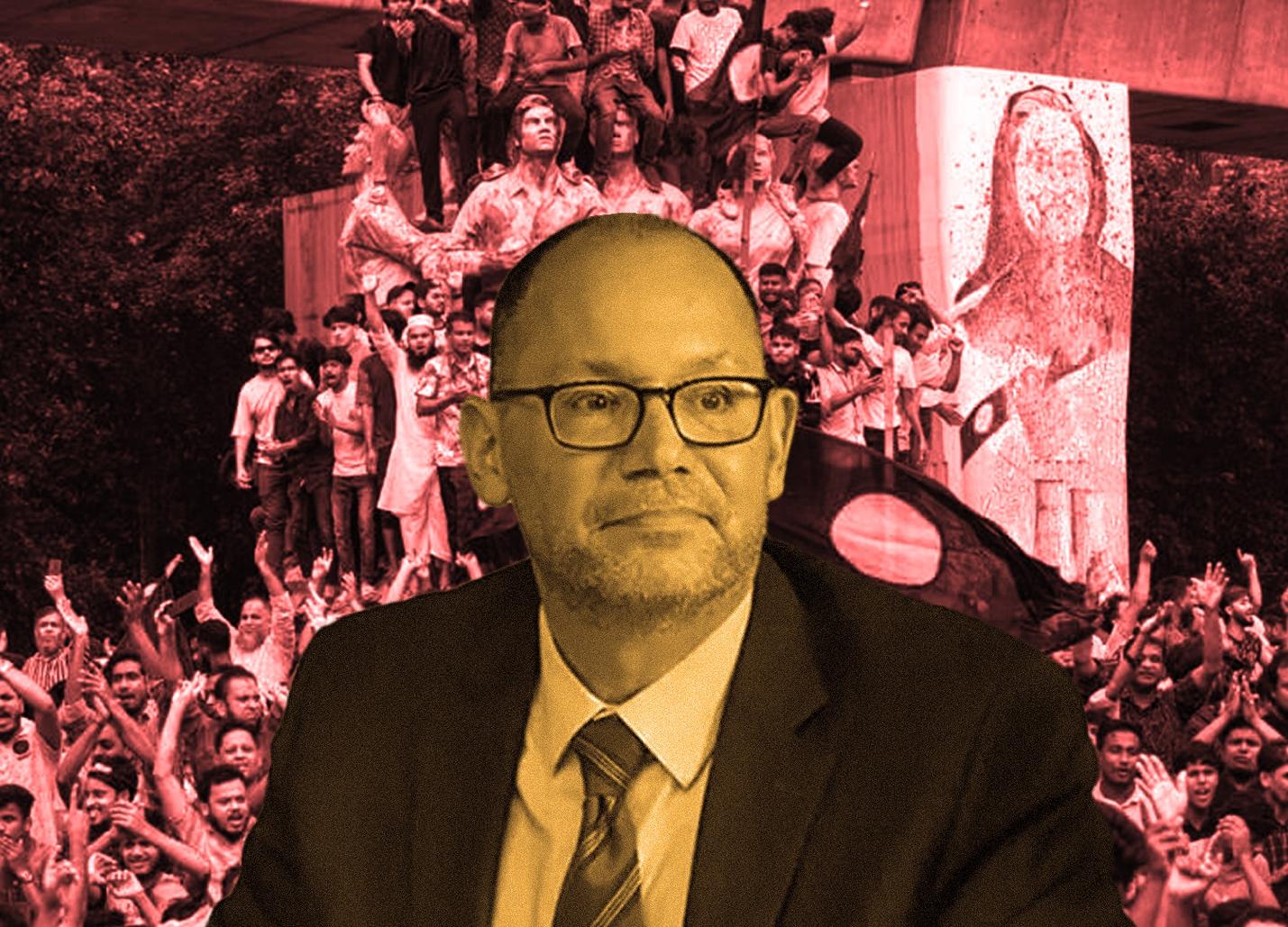
Before the protests broke out, Netra News had published articles accusing Cabinet-level officials of corruption while whipping up hysteria against the Hasina government in an attempt to advance the goal of regime change.
Predictably, it was silent about the corruption of prominent BNP figures, including Tarique Rahman, the son of party leader Khaleda Zia, about whom a 2009 State Department cable stated had a “reputation as a corrupt thug” and who has been investigated by the FBI.[7]
When the BNP was in power, it was dogged by “corruption, kleptocracy, the introduction of a culture of extrajudicial killing and the spread of pervasive torture,” according to a Bangladeshi blogger who prefers to remain anonymous.
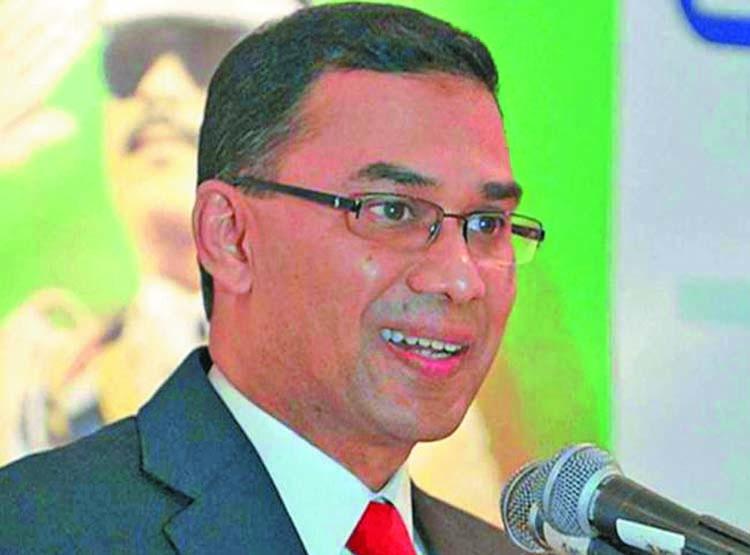
The blogger wrote that “there is no reason to regard BNP as the real democratic alternative, which is exactly what NED funded groups are promoting.”[8]

-
The latter is discussed in Mujib Mashal and Saif Hasnat, “Attack on Toppled Party Shows Bangladesh’s Vicious Cycle,” The New York Times, August 16, 2024, A10. ↑
-
Hasina has accused the Pakistani intelligence services (ISI), which have long ties to the CIA, of fomenting the protests. ↑
-
Hasina signed deals for more than $40 billion of Chinese investment under the One Belt, One Road Initiative. ↑
-
Jeffrey Sachs, “Accusations of US Regime Change Operations in Pakistan and Bangladesh Warrant U.S. Attention,” Common Dreams, August 19, 2024. A key figure in the Biden administration pushing the agreements as part of its Indo-Pacific strategy was none other than former Under-Secretary of State Victoria Nuland, who was a central figure in the 2014 Maidan coup in Ukraine that triggered the Ukraine-Russia war. ↑
-
Yunus was more recently charged with forgery, money laundering and embezzlement and was sentenced to six months in prison for violating Bangladeshi labor laws. Yunus and his supporters claimed that the charges were politically motivated. Sheikh Hasina called Yunus a “bloodsucker of the poor.” ↑
-
Grameen America, the Grameen Bank’s non-profit U.S. flagship, which Yunus chairs, allegedly gave between $100,000 and $250,000 at its peak, annually, to the Clinton Foundation. ↑
-
In October 2018, Rahman was sentenced to life imprisonment by a Bangladeshi court for his role in a plot to assassinate Hasina in 2004. Hasina survived the attack with partial hearing loss. In August 2023, Rahman was sentenced to nine years in prison and his wife to three years for accumulating wealth beyond their declared income. The court found them guilty of amassing illegal wealth and concealing information about the wealth, Dhaka Metropolitan Senior Special Judge ruled after the couple’s trial in absentia. ↑
-
The blogger wrote that “Netra News silences and censors critics of Khaleda Zia and Tarique Rahman. Its Editor-in-Chief Tasneem Khalil is an ardent defender of Tarique and shields the BNP acting chairman from criticism on social media. Khalil has become a BNP activist himself.” ↑
CovertAction Magazine is made possible by subscriptions, orders and donations from readers like you.
Blow the Whistle on U.S. Imperialism
Click the whistle and donate
When you donate to CovertAction Magazine, you are supporting investigative journalism. Your contributions go directly to supporting the development, production, editing, and dissemination of the Magazine.
CovertAction Magazine does not receive corporate or government sponsorship. Yet, we hold a steadfast commitment to providing compensation for writers, editorial and technical support. Your support helps facilitate this compensation as well as increase the caliber of this work.
Please make a donation by clicking on the donate logo above and enter the amount and your credit or debit card information.
CovertAction Institute, Inc. (CAI) is a 501(c)(3) non-profit organization and your gift is tax-deductible for federal income purposes. CAI’s tax-exempt ID number is 87-2461683.
We sincerely thank you for your support.
Disclaimer: The contents of this article are the sole responsibility of the author(s). CovertAction Institute, Inc. (CAI), including its Board of Directors (BD), Editorial Board (EB), Advisory Board (AB), staff, volunteers and its projects (including CovertAction Magazine) are not responsible for any inaccurate or incorrect statement in this article. This article also does not necessarily represent the views the BD, the EB, the AB, staff, volunteers, or any members of its projects.
Differing viewpoints: CAM publishes articles with differing viewpoints in an effort to nurture vibrant debate and thoughtful critical analysis. Feel free to comment on the articles in the comment section and/or send your letters to the Editors, which we will publish in the Letters column.
Copyrighted Material: This web site may contain copyrighted material the use of which has not always been specifically authorized by the copyright owner. As a not-for-profit charitable organization incorporated in the State of New York, we are making such material available in an effort to advance the understanding of humanity’s problems and hopefully to help find solutions for those problems. We believe this constitutes a ‘fair use’ of any such copyrighted material as provided for in section 107 of the US Copyright Law. You can read more about ‘fair use’ and US Copyright Law at the Legal Information Institute of Cornell Law School.
Republishing: CovertAction Magazine (CAM) grants permission to cross-post CAM articles on not-for-profit community internet sites as long as the source is acknowledged together with a hyperlink to the original CovertAction Magazine article. Also, kindly let us know at info@CovertActionMagazine.com. For publication of CAM articles in print or other forms including commercial internet sites, contact: info@CovertActionMagazine.com.
By using this site, you agree to these terms above.
About the Author

Jeremy Kuzmarov holds a Ph.D. in American history from Brandeis University and has taught at numerous colleges across the United States. He is regularly sought out as an expert on U.S. history and politics for radio and TV programs and co-hosts a radio show on New York Public Radio and on Progressive Radio News Network called “Uncontrolled Opposition.”
He is Managing Editor of CovertAction Magazine and is the author of six books on U.S. foreign policy, including Obama’s Unending Wars (Clarity Press, 2019), The Russians Are Coming, Again, with John Marciano (Monthly Review Press, 2018), Warmonger. How Clinton’s Malign Foreign Policy Launched the U.S. Trajectory From Bush II to Biden (Clarity Press, 2023); and with Dan Kovalik, Syria: Anatomy of Regime Change (Baraka Books, 2025).
Besides these books, Kuzmarov has published hundreds of articles and contributed to numerous edited volumes, including one in the prestigious Oxford History of Counterinsurgency .
He can be reached at jkuzmarov2@gmail.com and found on substack here.

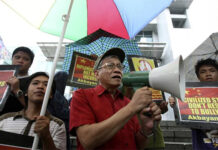


Cherry picking information to make a story- people can not get out of their eco chamber and mostly be biased by reports like this. Most importantly- one needs to realize- what is an opinion and what is fact.
Every information are very true .Dr. Younus is a Power-Hungry Man. He did everything for power.
Very authentic and factual information about the colour revolution in Bangladesh.
“In the latter case, Lu told the Pakistani ambassador to the U.S., Asad Majeed Khan, that Imran Khan—considered too independent and close to China—had to be removed as prime minister in a parliamentary vote of no confidence, otherwise there would be consequences for Pakistan.”
I find that hard to believe. If the US has that power why did it not use it on Pakistan to stop it supporting the Taliban fighting the US in Afghanistan